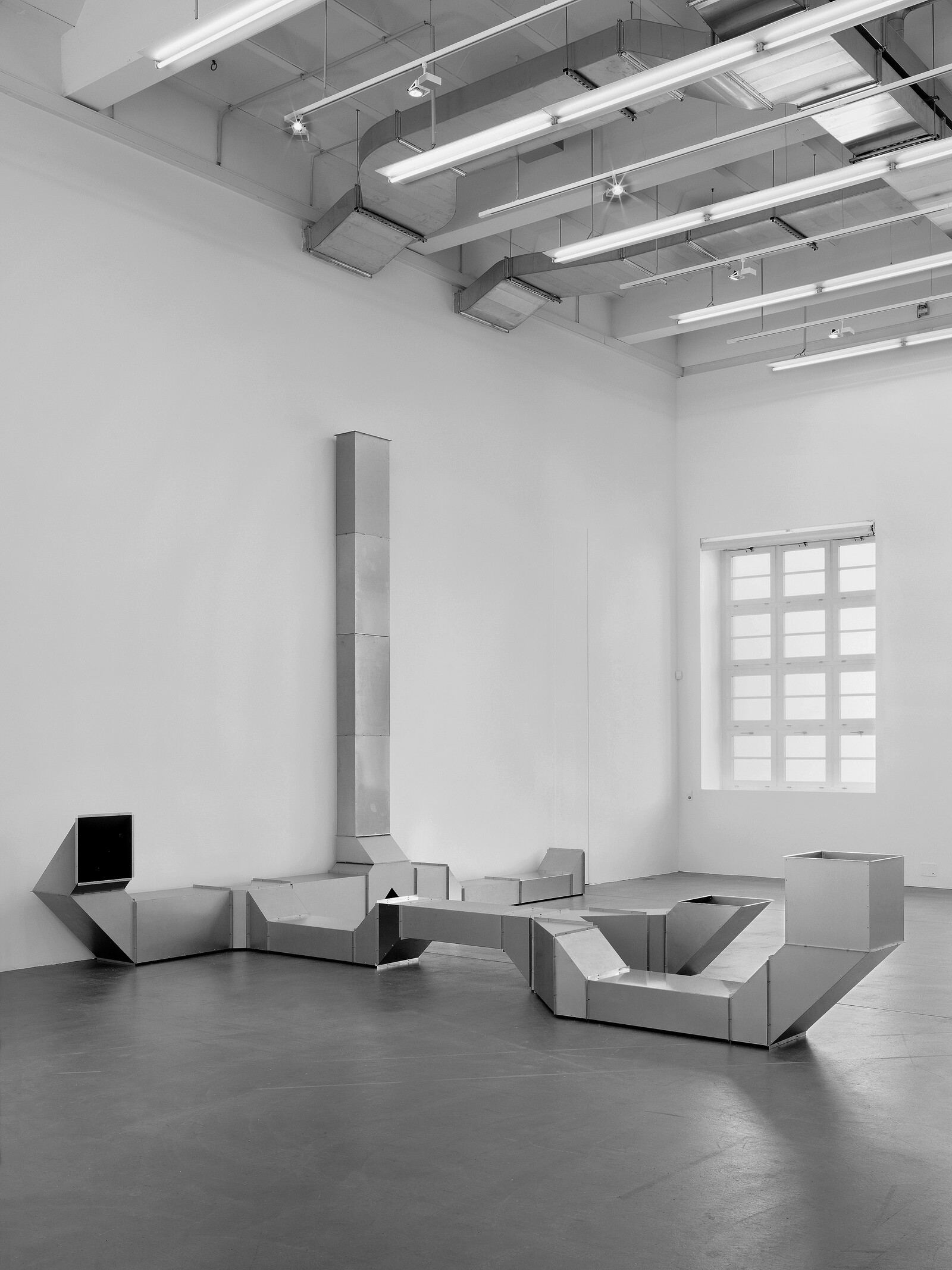Work in progress
October 18, 2019–March 8, 2020
Plaça dels Àngels, 1
08001 Barcelona
Spain
macba@macba.cat
Charlotte Posenenske: Work in Progress presents an in-depth look at the practice of the German artist between 1956 and 1968, a short but intense period, when she was active in making art. Posenenske (Wiesbaden, 1930–Frankfurt 1985) was born Liselotte Henriette to a Jewish family. She studied at the State Academy of Fine Arts in Stuttgart with Willi Baumeister, who introduced her to modernism and Soviet Constructivism.
Posenenske’s works can be described as oscillating between Minimalism and Conceptualism, participatory art and performance, social practice and institutional criticism. The exhibition brings together her first drawings and paintings (her earliest experiments with mark making), aluminium wall-reliefs, and her last and best-known modular sculptures. The MACBA show incliudes a new production, Drehflügel Series E, based on drawings by the artis never produced in her lifetime
Using construction materials, serial repetition and industrial manufacturing, Posenenske developed a form of mass-produced Minimalism that addressed the social and economic concerns of her time, circumventing the art market and rejecting established formal and cultural hierarchies. Her modular sculptures enabled the “consumer”—the curator, viewer or owner—to decide and change the configuration of the installation according to their preference, thus surrendering some of the artist’s authorship and opening up the work to others. In a statement published in Art International in 1968, Posenenske asserts: “The things I make are variable, as simple as possible, reproducible. They are components of a space, since they are like building elements, they can always be rearranged into new combinations or positions, thus they alter the space. I leave this alteration to the consumer who thereby again and anew participates in the creation.”
This openness was also reflected in the fact that Posenenske intended her works to be replicated and did not limit them to a finite edition. Moreover, she offered them at their material cost, thus undermining the economic imperative of the art market. In her view, “art is a commodity of transient contemporary significance… It is difficult for me to come to terms with the fact that art can contribute nothing to solving urgent social problems.” In 1968, owing to her disillusionment with the limits of art, Posenenske abandoned her artistic work to devote herself to sociology, specialising in the study of labour and industrial production.
While Posenenske exhibited widely during the years that she worked as an artist—alongside figures such as Hanne Darboven, Donald Judd and Sol LeWitt—her contributions to the discourse of Minimal and Conceptual art remain largely ignored. This retrospective is the most comprehensive exploration of Posenenske’s work since her death and recovers the artist’s legacy as a critical and prescient voice within contemporary art.
The exhibition will be the first major presentation dedicated to the German artist to be held in Spain. It is on view at Dia:Beacon (USA) from March 8 to September 9, 2019, before embarking on a European tour to MACBA, then Kunstsammlung Nordrhein-Westfalen Düsseldorf (April 4–August 2, 2020) and Mudam Luxembourg – Musée d’Art Moderne Grand-Duc Jean (October 2, 2020–January 10, 2021).
MACBA will publish the book in Spanish. This book vindicates Posenenske’s important legacy for future generations of artists, historians, and audiences. The propositions and provocations contained in this book recontextualize the artist’s contributions to the discourse of Minimal, Conceptual, and participatory practices.


